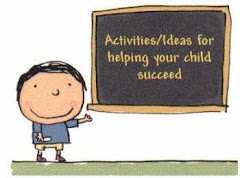 Blog posting by Washington Post writer Jay Mathews on the problems with the Impact evaluation system featuring an interview with WTU Impact Task Force Chairperson Marni Barron. To view the entire article and comments click the link below:
Blog posting by Washington Post writer Jay Mathews on the problems with the Impact evaluation system featuring an interview with WTU Impact Task Force Chairperson Marni Barron. To view the entire article and comments click the link below:http://voices.washingtonpost.com/class-struggle/2010/02/problems_with_dc_teacher_evalu.html
Problems with D.C. teacher evaluation
Marni Barron, an innovative educator, shares my discomfort with many Washington area school districts that rate nearly 100.percent of their teachers as satisfactory. (I’m not kidding: Alexandria says 99.percent, Fairfax County, 99.1.percent, Montgomery County, 95, Loudoun County, 99, Prince George’s County, 95.6, and so on.)
But we disagree over the region’s most daring effort to assess educators honestly, the D.C. schools’ IMPACT program. I think it is a worthy experiment. Barron thinks it needs to do much more than it is designed to do to train teachers in its intricacies and demands.
Barron, 38, has been teaching, or coaching teachers, for 15 years. She works with the IMPACT system daily as the instructional coach assigned to help 15 teachers achieve and maintain excellence at Phoebe Hearst Elementary School in Northwest Washington. I (age withheld) have never taught a day of school in my life, and know no more about IMPACT than what I have read and heard from teachers.
Which of us are you going to believe?
I sense that the kind of evaluation the District is attempting will eventually reach other area districts, at least in underperforming schools. So we suburbanites should listen to what IMPACT experts such as Barron have to say.
I will offer some evidence of the program’s good effects soon, but first consider Barron’s critique, rather courageous given that she is working for IMPACT’s creators.
She likes tough, deep assessments that measure student progress in many ways, such as portfolios and behavior. “I am actually kind of a fan of stuff like this,” she said, “but do it right.”
Like any good teacher, she has visual aids for slow students like me. With some strain, she lifted a milk carton filled to the top with books, syllabuses and planning schedules. Beside it she placed a two-inch stack of papers. The milk carton material was what teachers waded through during their three years of training to establish No Child Left Behind measures in Michigan, where Barron once taught. The two-inch stack was what D.C. teachers were required to digest during three days of training for IMPACT and the new Teaching and Learning Framework.
Ready or not, the D.C. program is underway. Most teachers have had at least two of their required five annual observations: three by their principal or other school administrators and two by outside evaluators, called “master educators.”
In that rush forward, Barron said, supervisors are changing the rules. Barron interviewed last year to be a master educator. When she asked whether those evaluators could provide extra advice and support to teachers who needed it, as was done by coaches in Michigan, she was told no. When she was asked at the end of the interview whether she thought she would be a good fit for the job, she said no.
Recently some master educators told Barron those were the old rules. They now encourage teachers to meet with them after hours to discuss their weaknesses.
Barron was told to observe and fill out a classroom visit form for each of her teachers identical to the one used by the official evaluators. This was to get them in tune with the process. But Barron concluded it was a violation of the D.C. teacher contract, which bars teachers from evaluating their peers. (D.C. officials disagree). She declined to do that. Instead, she invites teachers to fill out the form themselves and see her to discuss improvements they want to make in their classroom methods.
Barron said the IMPACT guidebooks are too vague and too subjective. An assessment system will work only if it includes a major effort to show teachers how to improve through evidence-based instructional strategies, she said. There isn’t enough time for that in the five or six days set aside each year for professional development and the spare moments she has to talk to them during the regular school day.
This strikes me as a soluble problem. Barron said her principal, Bill Kerlina, is a fine educator. Whatever IMPACT’s flaws, she said, he does his best to be fair in upholding IMPACT by backing his ratings with evidence.
That says to me that good educators, including Barron and Kerlina, are making the necessary adjustments in this new system.
Barron hears that and gives me the patient look she uses with confused 10-year-olds. It will be a while before we know whether IMPACT works. But Barron thinks D.C. schools are trying to build this ship when it is already at sea, without involving the crew.
mathewsj@washpost.com











1 comment:
I am an Instructional Coach in DCPS too and I see Barron's point of IMPACT not being perfect. DCPS said it's still a work in progress, and their mistake was they pushed it down the teachers' throats without having a pilot study of it. They made the teachers their guinea pigs!
But Barron as "the expert" on teacher mentoring and classroom instruction? My colleagues and I will not refute this, but nor will we agree.
Post a Comment